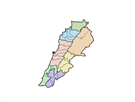The focal point of the “Arab Spring” has shifted from the successful uprisings of Tunisia and Egypt to the bleak developments in Bahrain and Libya. As the military forces of Britain, France, and the United States are taking “all necessary measures” to topple the Qaddafi regime, troops from the Gulf Cooperation Council (GCC) Peninsula Shield Force continue to “stabilize” the al-Khalifa regime in the face of a peaceful democratic uprising in Bahrain. The discrepancies between intervention for regime stability in Bahrain and that of regime change in Libya are undergirded by the fact that the interveners in both cases are ultimately one and the same. The GCC and Arab League member states that dispatched their troops to shore up the monarchy in Bahrain are the very same states that endorsed and offered to participate in a military campaign against the jamahiriyyah in Libya. Similarly, the Western powers that have cited the “Responsibility to Protect” principle as justification for intervening in Libya are the very same states that have called for “restraint” in Bahrain. In both cases—notwithstanding differences in contexts and natures of the uprisings—authoritarian regimes are brutally attacking civilians through lethal force as well as arrests, detentions, and disappearances. In both cases—not withstanding the difference in the purported justifications and natures of each intervention—the logics underlying the actions of Western and Arab powers are one and the same.
When external powers intervene to prop up a regime and put down popular democratic demands by force, little needs to be said to convey the problem. But when the same powers intervene to topple a different authoritarian regime, we should not fail to appreciate the dangers of intervention. Many have convincingly argued that references to the historical legacies of colonialism and authoritarianism along with contemporary hypocrisies of fig leafs of accountability cannot alone justify failure to intervene in Libya. Indeed, to do so would simply advance ideological agendas at the expense of real possibilities for preventing a massacre or enabling a peaceful uprising-turned-armed-revolt to succeed.
Western and Arab powers have for some time been intervening in Bahrain and Libya. Thus, what is at stake here is not the question of intervening but rather one of changing the nature of ongoing interventions. In Bahrain, this has taken the form of arming and legitimating the al-Khalifa’s rule primarily for energy and geostrategic interests. In Libya, intervention has taken the form of bringing back into the fold the al-Qaddafi regime primarily for energy and immigration interests. To mark the US/EU-sanctioned entrance of GCC troops into Bahrain or the GCC/Arab League-sanctioned aerial assault on Qaddafi’s forces as the starting point of intervention is to render invisible the myriad ways in which the authoritarian regimes of Bahrain and Libya were incorporated—albeit different—into local and regional strategies of Western and Arab powers. Thus, any inquiry into what is to be done at this particular juncture cannot simply start with the present. To do so—as many who wanted to justify the continuation of the US occupation in Iraq amidst the real threat of civil war—is to ignore some of the most important reasons why we find ourselves in this current situation in the first place. External interveners will always act according to the logic of their own interests and there is no reason to assume an alignment between those logics and the interests of the people on the ground. Thus it is not only that the intervention in Bahrain points to a contradiction in principle and practice. It is also that such action points to the need to question the assumption that the current intervention in Libya is de facto in the interest of the Libyan people.
The choice—that those of us wanting to act in solidarity with the people of Libya face—is not a dichotomy between doing nothing—while leaving the Libyan people to their own fate—and doing something—while deferring to powerful external actors to determine what that something is. To call for direct intervention into Libya should not have been equated with providing a carte blanche to Western and Arab powers in determining how best to deal with the situation in Libya. We should have discussed any and all possible forms of intervention. But we also should have only advocated types of intervention that were identified by a detailed cost-benefit analysis exclusively rooted in the needs and aspirations of the Libyan people. Instead, a broad set of tactics with no clear strategy have been authorized and taken up by powerful external actors. Bahrain—not to mention Afghanistan and Iraq—offers more than just a contradictory example of how Western and Arab powers conduct themselves. More importantly, it cautions against surrendering our responsibility of solidarity to the very powers that we are in solidarity against.
Current developments in both Bahrain and Libya are forms of intervention that take control away from local actors. However, there is a difference: those of us in solidarity with the Bahraini people had little explicit say in substituting local agency; in Libya, those of us in solidarity facilitated the taking of control away from local actors. This is the case not because of intentions but because we did not struggle with the nuances of our call to action in Libya nor with the limitations on holding accountable those that we empowered to act.
Now, the decision-makers of the course of events in both Bahrain and Libya are outsiders; repressing democratic calls in one instance and visiting untold potential damage on a whole country in another. I fear for the peoples of Bahrain and Libya in the face of authoritarian violence. I also fear for them in the face of Western and Arab intervention. History has shown both to be catastrophic for the humanitarian wellbeing and the political aspirations of the people of the region.
This post was first published in bitterlemons-international.org.
![[Image from unknown archive.]](https://kms.jadaliyya.com/Images/357x383xo/Graphic_ArabWorld_unrest.jpg)










